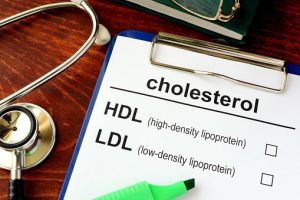
HDL cholesterol is affected by many different things including genetics, diet, and other lifestyle habits. Although you can’t change your genetics, you can stick to a healthy lifestyle to naturally boost your good cholesterol, and here’s how.
Tips to Boost Your HDL Cholesterol
Stop smoking: Studies have shown that smoking not only increases your risk of heart disease but can lower HDL levels.
Exercise: Exercise has been proven to boost HDL levels along with reducing weight, which is another factor in improving your HDL levels. Obesity is associated with high LDL cholesterol and low HDL cholesterol.
Eat healthier: Diet is a major player in cholesterol levels, as some foods can increase LDL cholesterol while others lower HDL cholesterol. The main foods that contribute to high LDL cholesterol are white bread, sugar, some margarine, fried foods, and processed foods. Although some fats contribute to high cholesterol, other fats are good for you and can be found in olive oil, avocados, nuts, and fatty fish. These types of fats can increase HDL cholesterol, which means there’s more of it to remove LDL cholesterol.
Cholesterol levels play a large role in the health of your heart and ensuring that you have more HDL cholesterol compared to LDL cholesterol can help protect your heart for years to come.
Related: